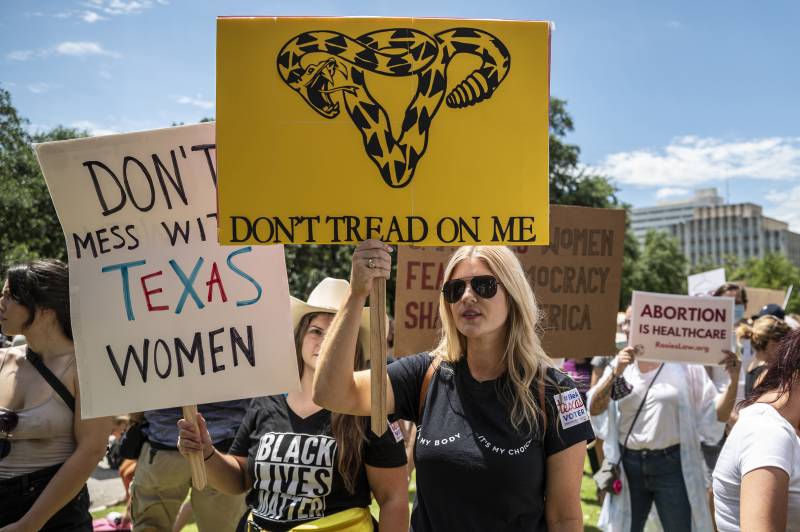With the U.S. Supreme Court staying silent, a new law went into effect in Texas that bans abortions after about six weeks of pregnancy. That's well before many pregnant people even know they are pregnant.
The law allows private citizens to sue abortion providers and anyone else who helps a woman obtain an abortion — including those who give a woman a ride to a clinic or provide financial assistance to obtain an abortion. Private citizens who bring these suits don't need to show any connection to those they are suing.
The law makes no exceptions for cases involving rape or incest.
The news has drawn intense criticism across the country. In a statement, California Governor Gavin Newsom said he was "outraged" at the U.S. Supreme Court's lack of action, saying that "silently, in the dead of night, the Supreme Court has eviscerated the fundamental protection of a woman’s right to choose that Roe v. Wade has protected for the last 50 years."
Read on for a breakdown on why the law is one of the strictest abortion bans in the country.
What does the Texas law prohibit?
It bans abortion as soon as cardiac activity is detectable. That's around six weeks, which is before a lot of people know that they're pregnant. Other states have tried to do this, but those laws have been challenged by abortion-rights groups and blocked by federal courts again and again.
How is this law different from other states' efforts?
Groups who oppose abortion rights have pushed for this Texas law, hoping that it will be harder for federal courts to knock it down. Instead of requiring public officials to enforce the law, this law allows individuals to bring civil lawsuits against abortion providers or anyone else found to "aid or abet" illegal abortions.
This law empowers individuals to enforce an abortion ban. How would that work in practice?
Anyone who successfully sues an abortion provider under this law could be awarded at least $10,000. And to prepare for that, Texas Right to Life has set up what it calls a "whistleblower" website where people can submit anonymous tips about anyone they believe to be violating the law.

9(MDAxOTAwOTE4MDEyMTkxMDAzNjczZDljZA004))
